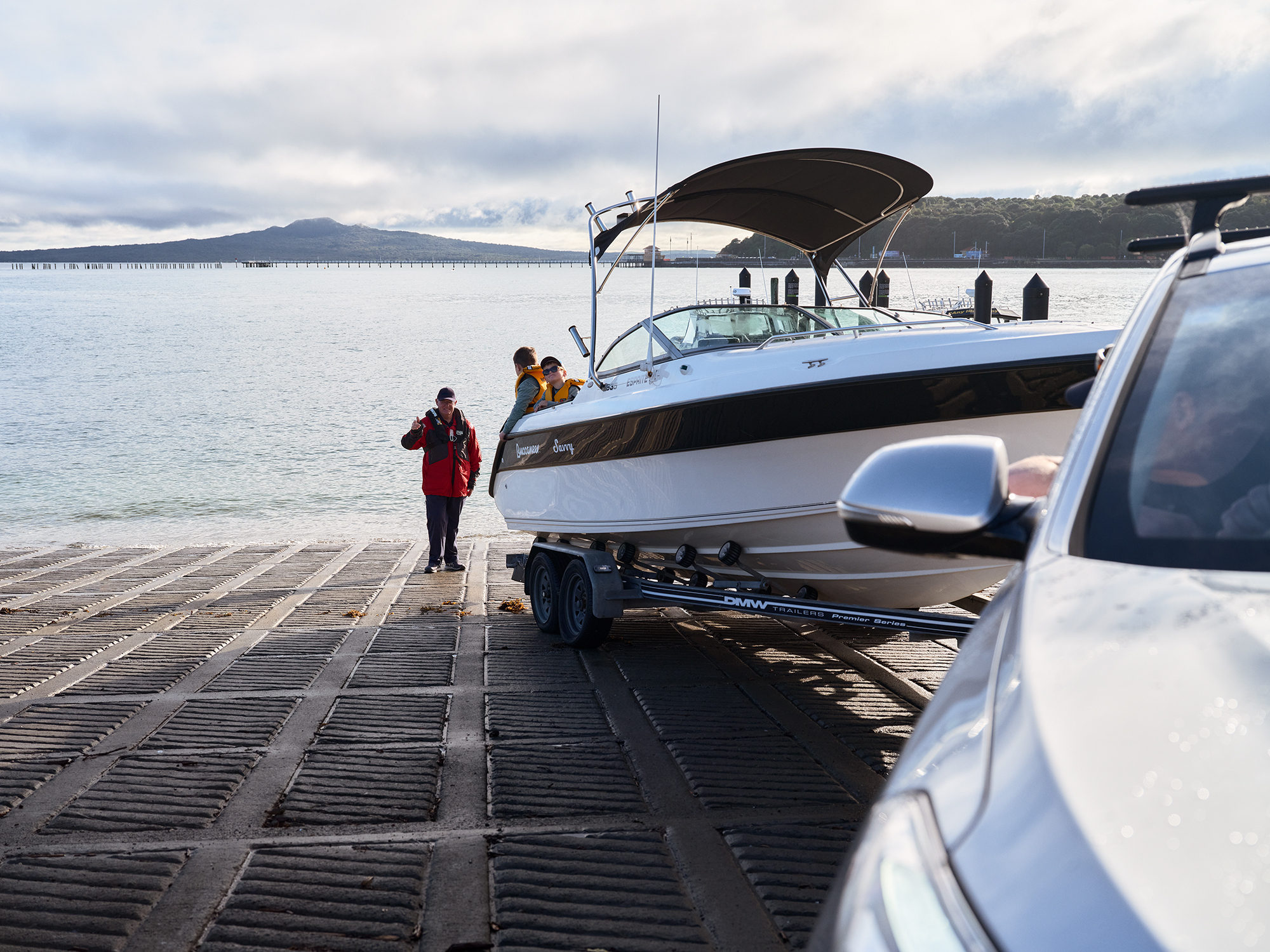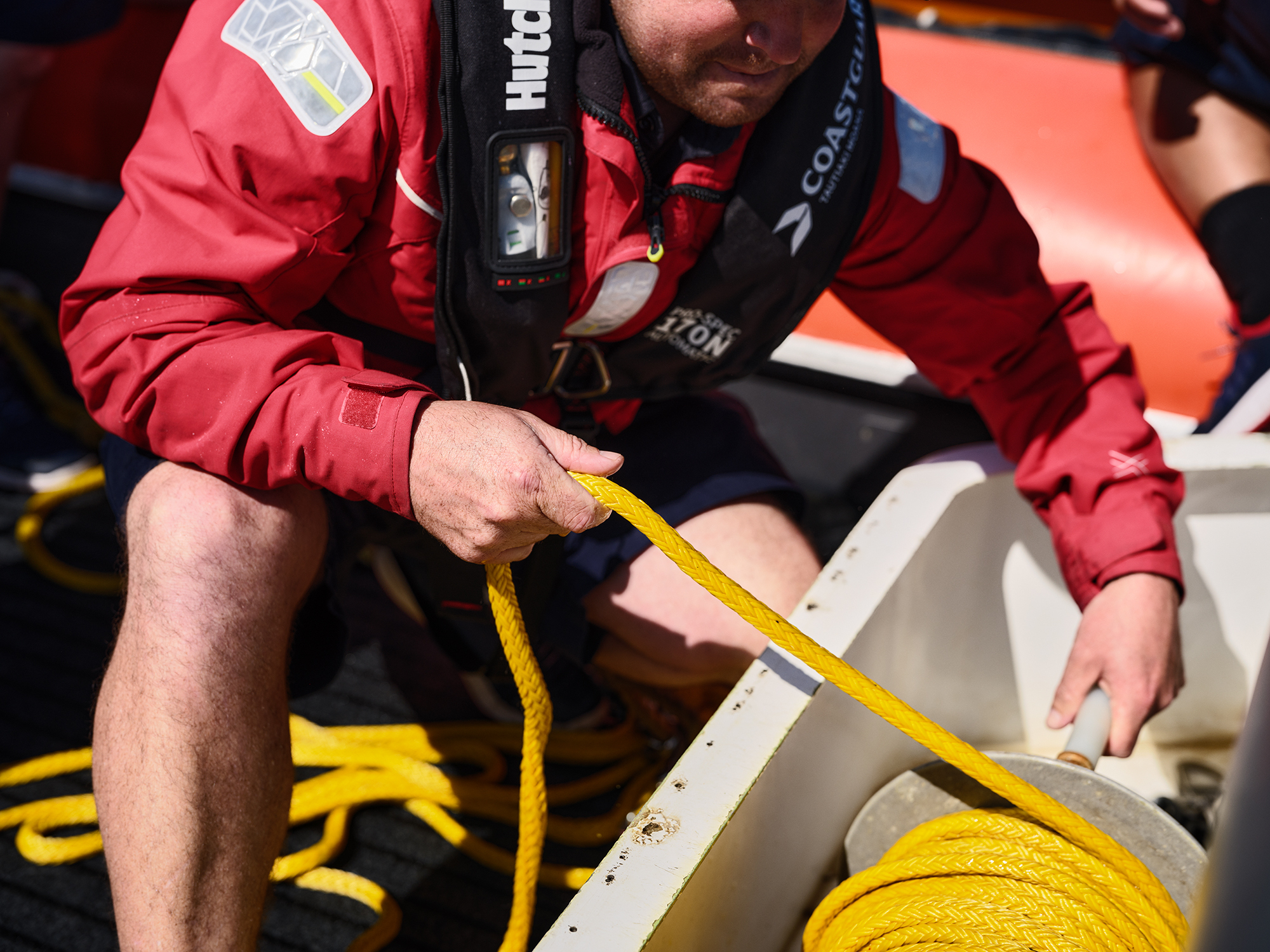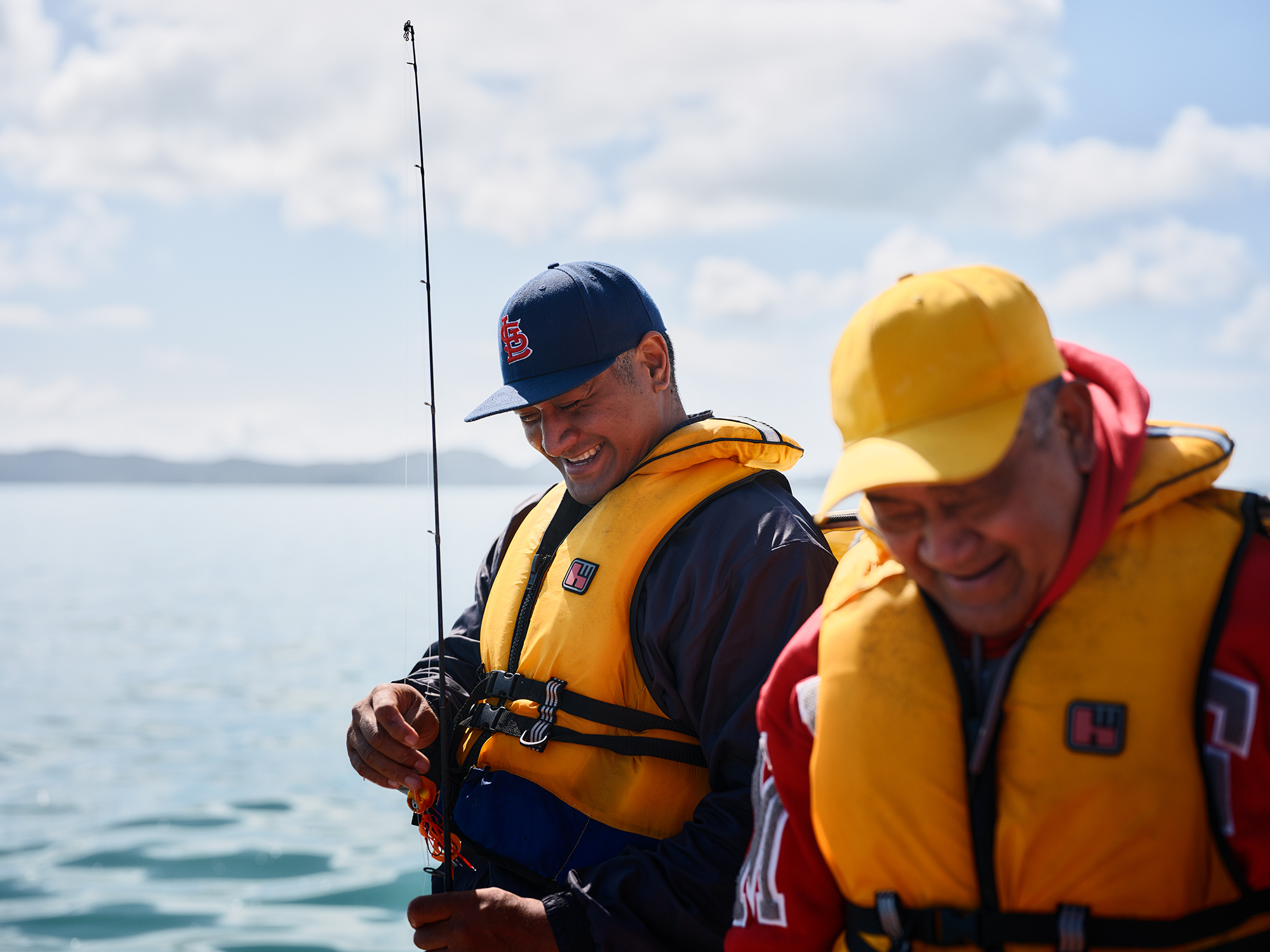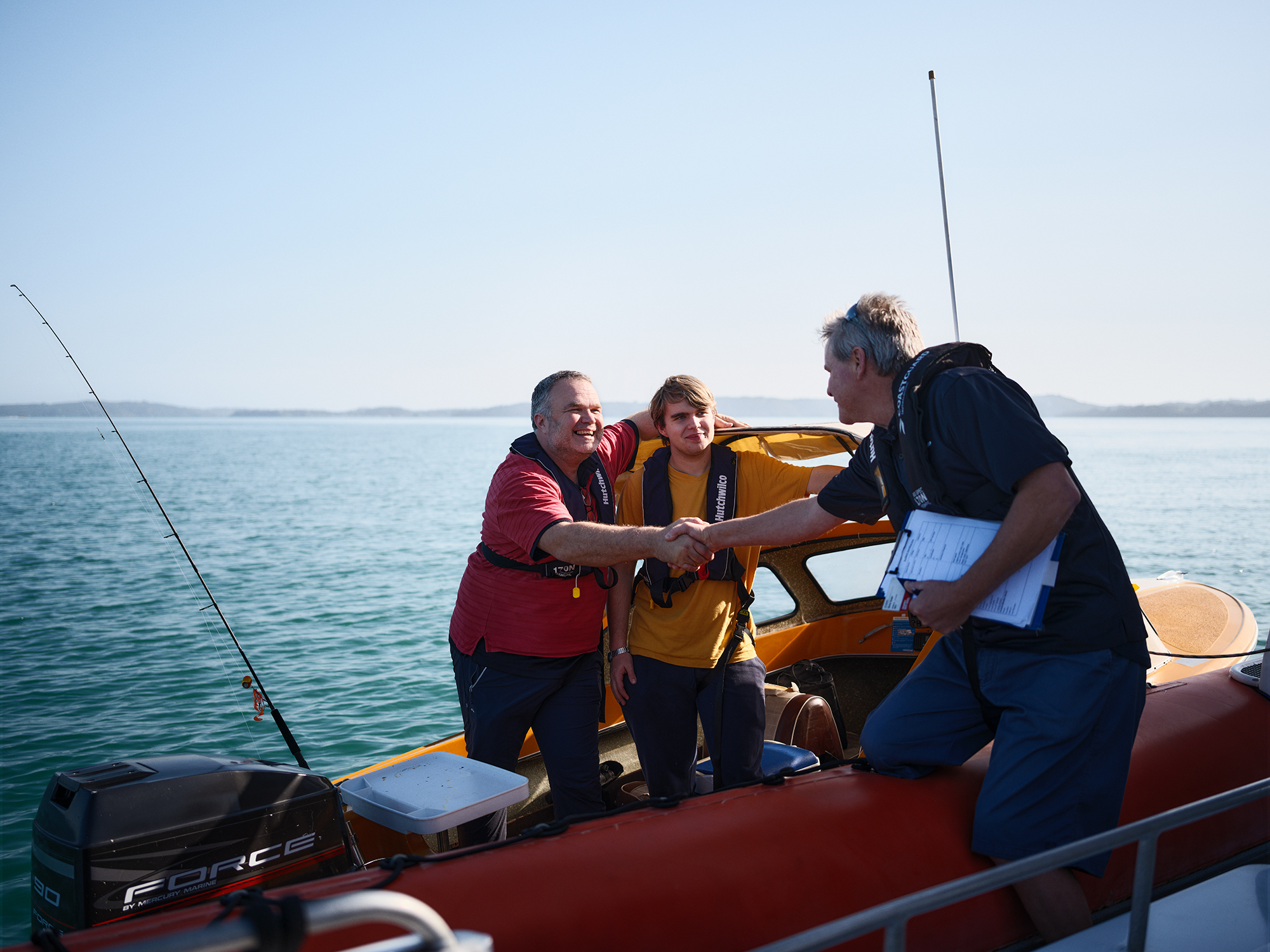Author: Will Hay
There’s a well-worn saying in boating circles that the term BOAT actually stands for “Bring Out Another Thousand”. And while there’s more than a grain of truth to it, that doesn’t mean your passion for the water has to drain your wallet.
With fuel prices back on the rise, maintenance costs creeping up, and just the general cost of living biting, many Kiwis are tightening the lines on discretionary spending. The good news is you don’t need a flash launch or a deep-pocketed fuel budget to enjoy the magic of Aotearoa’s coastlines. With a few clever tweaks, some preventative maintenance, and a bit of smart planning, you can still get maximum fun per dollar this summer.
Here are 7 trusty tips for keeping your boating affordable without cutting corners on safety or enjoyment.

1. Trim Your Fuel Bill, Not Your Fun
For most boaties, fuel is the biggest recurring cost and often the easiest to overlook. The way you drive, maintain, and even load your boat can make a surprisingly big difference to how far each litre takes you.
Start with the basics:
Clean hull, clean conscience: A fouled hull can increase drag by 10–15%, forcing your engine to work harder and burn more fuel. Keep your hull clean and on moored craft consider an antifouling coat before the season kicks off.
Find your sweet spot: Every boat has an optimal cruising speed, usually just below planning speed, where fuel efficiency peaks. Google your outboard make, hp and year and usually you’ll find a burn rate calculator or chart, showing your fuel burn rate in litres per hour across different RPM as a general guide.
Trim and balance: Proper trim reduces resistance, improves handling, and saves fuel. Distribute weight across your hull evenly and experiment with your trim tabs or outboard angle to find the smoothest & most efficient ride.
Plan your trips: Combine runs, avoid unnecessary detours, and time your outings with the tide so you’re not battling current on the way home. Punching through chop burns a lot more fuel than cruising over glass.
Even simple changes like these can save hundreds over a season, enough for a few more days out on the water (or that new rod you’ve been eyeing up).
2. Do It Yourself (When it’s safe to do so)
Boats need love to stay seaworthy, but that doesn’t mean you have to work it out or pay a professional for every little job. Many small maintenance tasks are perfectly manageable at home with a little know-how and the right tools. Small but frequent preventative maintenance tasks go a long way to avoid large repair bills caused by neglect.
For example:
Washing and waxing your hull regularly helps spot damage early and keeps surfaces protected.
Checking and topping up fluid levels (oil, coolant, hydraulic) is straightforward once you know your engine layout.
Replacing sacrificial anodes, cleaning battery terminals, and lubricating steering cables are all within reach of a handy weekend warrior.
There are fantastic step-by-step resources online, including Boating NZ's video tutorials and the Coastguard YouTube channel to walk you through routine upkeep.
That said, never compromise safety or engine integrity to save a few bucks. Anything to do with electrical wiring, fuel systems, or complex mechanical work is best left to the experts. Think of DIY as “doing your bit,” not “doing it all.”

3. Buy Smart, Not Flash
Boating gear can be a slippery slope… one minute you’re browsing new lifejackets, the next you’ve convinced yourself you need a 12-inch chart plotter and an electric anchor winch.
Before reaching for the credit card, focus on value, not novelty.
Prioritise safety gear: Invest first in the essentials: modern lifejackets, a reliable VHF, and up-to-date distress gear.
Buy during sales: Retailers like Marine Deals often run promotional lines or end-of-season clearances where you can pick up serious bargains.
Consider second-hand: A well-maintained used GPS or sounder can perform just as well as a new one for half the cost.
Think longevity: A cheap battery might seem like a win today, but it won’t feel that way when it fails mid-season. Opt for quality gear from trusted suppliers like Century Batteries that offer long-term reliability.
If you treat your boat like an investment, protecting it and maintaining it well, you’ll spend far less over time than constantly replacing worn-out gear.
4. Share the Load (and the Fuel Bill)
Boating is always better with good company, and not just for the conversation. Splitting costs with mates is one of the easiest ways to keep your hobby sustainable.
Invite regular crew to chip in for fuel, supplies, or bait. As boat owners know well, they don’t run on ‘thanks’, & most are more than happy to contribute once you’re upfront about the real costs of running the boat. If not, well, at least you know who your real fishing buddies are… It keeps things fair and helps ensure you can keep inviting them back all season long.
You can also look into boat-share arrangements, either informally among friends or through structured syndicates that are getting more common across the country. If you only use your boat a handful of weekends a year, co-owning can dramatically cut costs for storage, insurance, and maintenance.
And for those who love the sea but not the upkeep, chartering or hiring a vessel for special occasions can be more cost-effective than full ownership, especially when you factor in maintenance downtime and off-season mooring fees.

5. Plan Smarter, Cruise Further
Sometimes the best way to save is to simply plan better. A bit of trip planning can cut costs, avoid frustration, and make every outing smoother.
Use the Coastguard App: Log your trip, check the weather, and review tide and wind forecasts before you cast off. Knowing the best window to travel can help you avoid unnecessary detours or rougher seas that chew through fuel.
Explore closer to home: You don’t need to burn 100 litres to find paradise. New Zealand’s coastline is packed with hidden gems just a few nautical miles from the ramp, perfect for short, affordable day trips.
Pack smart: Overloading the boat adds weight and reduces efficiency. Take only what you need, and always secure gear properly to avoid damage or loss.
A well-prepared skipper is a happy skipper, and a thrifty one too…
6. Safety: The Best Investment You’ll Ever Make
If there’s one area you should never skimp on, it’s safety. Saving a few dollars on maintenance, lifejackets, or training can cost far more in the long run, not just financially, but potentially in lives, and that’s something you just cannot put a price on.
Staying safe on the water is what Coastguard is all about. Whether its refresher training, equipment checks, or ensuring your membership is current, these small upfront costs pay dividends in peace of mind.
A Coastguard Membership, for example, is one of the best-value “insurance” options a boatie can have. One tow from Coastguard could otherwise cost hundreds, but members are covered, anytime, anywhere. It’s like having a mate on call 24/7.
As Coastguard volunteers will tell you, the smartest (and cheapest) rescue is the one that never has to happen.

7. The Real Value of Boating
When you break it down, boating isn’t really about the dollars. It’s about moments, the sunrise over still water, the laughter of kids catching their first fish, and the calm that settles when you drop anchor after a long week on land.
You don’t need the latest electronics or a gleaming hull to enjoy those moments. You just need a bit of care, planning, and a mindset that values experience over expense.
So next time someone jokes that BOAT stands for Bring Out Another Thousand, you can smile and say maybe, but with a bit of smart thinking, I’m bringing out another thousand memories instead.
ENDS